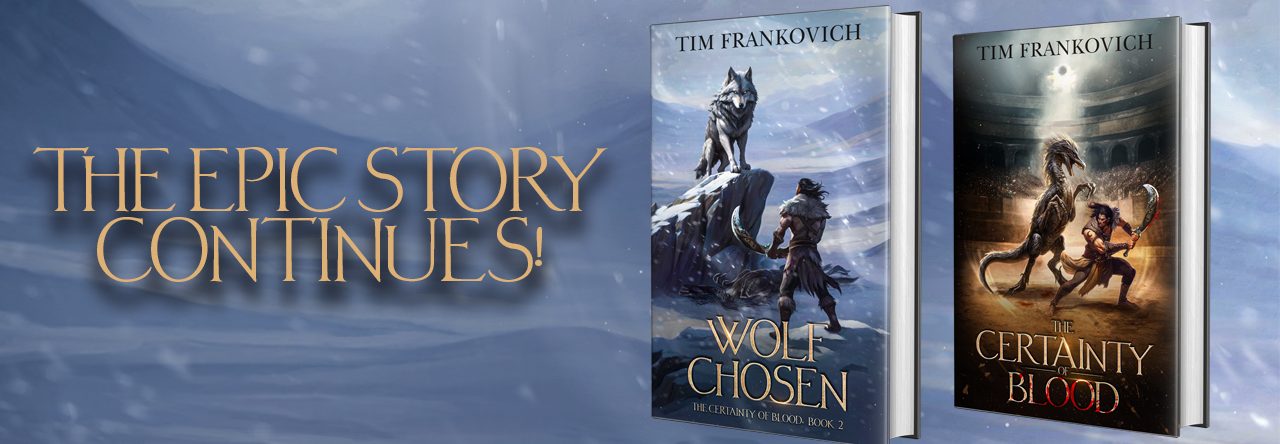One strong bit of writing advice I’ve seen repeatedly over the past few years is: fulfill the promises you make to the readers. By “promises,” what is meant is an indication within the story that something will happen or be explored. Writers make many promises to their readers throughout a story, sometimes without even realizing it. This ties in strongly with the “Chekhov’s Gun” concept or trope (look it up). This is not quite the same as foreshadowing, though the two concepts are linked.
For example, in the opening pages of my current novel, a surprising character wields a very expensive looking sword. A few pages later, that sword is missing. If I never mentioned the sword again in the book, that would be a pretty flagrant breaking of a promise to the readers. Obviously, the sword must be important somehow, and I need to bring it back up again later. That’s a clear promise to the reader.
This whole concept has really come home to me the last couple of weeks. I’ve been rewatching the TV series Marvel’s Agents of SHIELD with my son (it’s his first time seeing it). I had vague memories of season one, which started back in 2013. Mainly what I remembered is that much of the first season wasn’t very good, as if the series was kind of just spinning its wheels until Captain America: Winter Soldier came out and changed everything. After that, it took off, got steadily better season-after-season, and never slowed down again.
 As I rewatched it, I was reminded of the promises concept. Many times in the first season, the show threw out names and concepts familiar to long-time comic book readers, and then never followed up on them. It was a classic example of not fulfilling what was promised.
As I rewatched it, I was reminded of the promises concept. Many times in the first season, the show threw out names and concepts familiar to long-time comic book readers, and then never followed up on them. It was a classic example of not fulfilling what was promised.
Before I go any further, I’m giving a spoiler warning. I’m going to discuss some very specific plot elements from multiple seasons of the show, including the most recent (five). If you don’t want that, stop reading now, go watch them all, then come back. I’ll wait.
Actually, no. I won’t wait. That’s a lot of TV for you to binge through. I’ll just keep going now.
Here’s the big surprise in all of this: Agents of SHIELD DID fulfill some of their biggest promises – but not until season five! I have no idea if this was planned all along or not.
In some of the very first episodes of season one, the agents uncover this strange element called “gravitonium” (stop laughing; still better than “unobtanium”). They also meet the scientist studying it: Dr. Franklin Hall. All of that added up to one thing to comic book readers: Graviton! In Marvel Comics, Graviton is a massively powerful super-villain, with the power to manipulate gravity itself. And he started out as an ordinary scientist named… Franklin Hall. In the show, when Dr. Hall is absorbed into the gravitonium itself, and one final stinger scene shows his hand reaching back out of it… it’s a clear set-up. It’s a promise to the viewer: Graviton is coming!
Except he didn’t. The gravitonium showed up briefly in a couple more episodes late in the season… and then was never mentioned again. It was a huge disappointment. So why did the TV show do this? Budgetary concerns? Marvel telling them they couldn’t use that character after all? A change in the direction of the show? We may never know.
But then something happened early in season five that made long-time viewers sit up and pay attention. Someone name-dropped gravitonium again. It became an important plot element all of a sudden. Wow.
And then: shock of all shocks. In the final storyline of season five, Graviton arrives. Yes, it was totally different from the comic book in the way that it happened, but it made perfect sense for the show. One major element had me kicking myself for not guessing it ahead of time.
The promise from early season one was finally fulfilled in late season five. Amazing.
That’s not the only example. Multiple other plot elements that seemed to be tossed aside or forgotten came back at least briefly in season five. I have no idea if any of this had been planned ahead of time. More likely, the writers group for the show looked back and asked something like, “what can we bring back here during what might be our final season, that will reward our long-time viewers?”
Either way, it was immensely satisfying. And that’s what writers should be aiming to do for their readers.
But hopefully, it happens sooner than five books into a series…

Leave a Reply